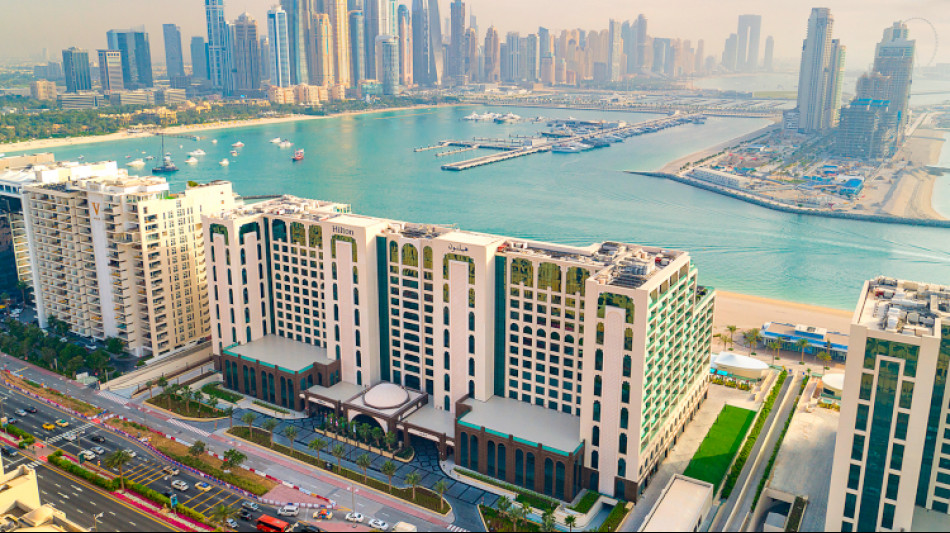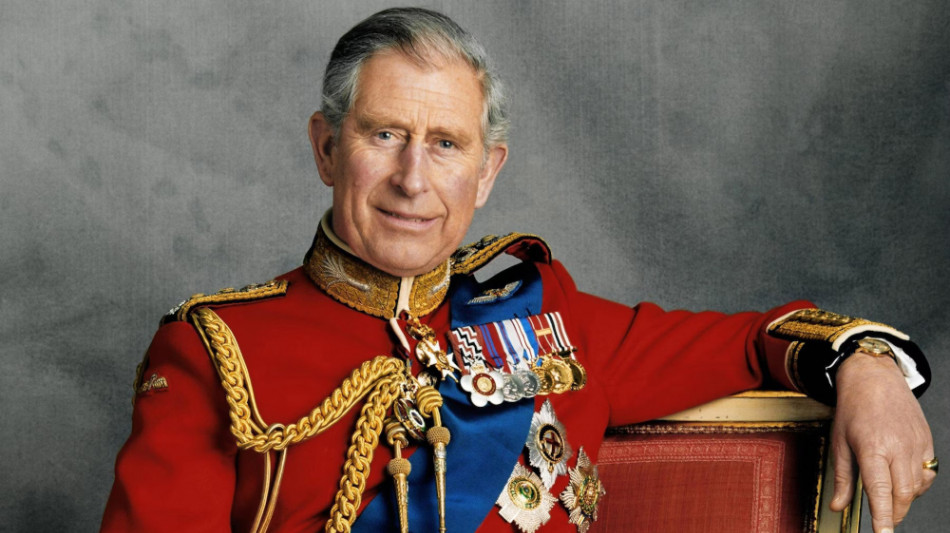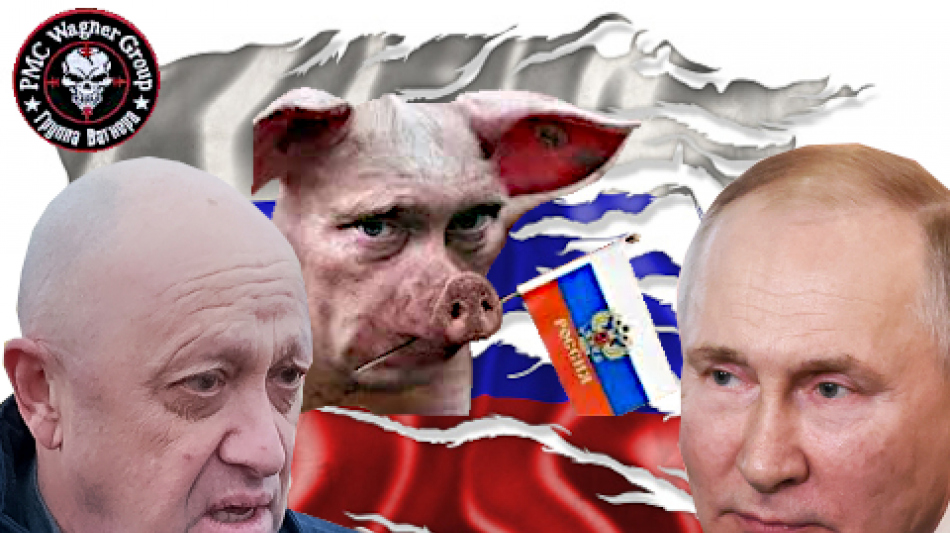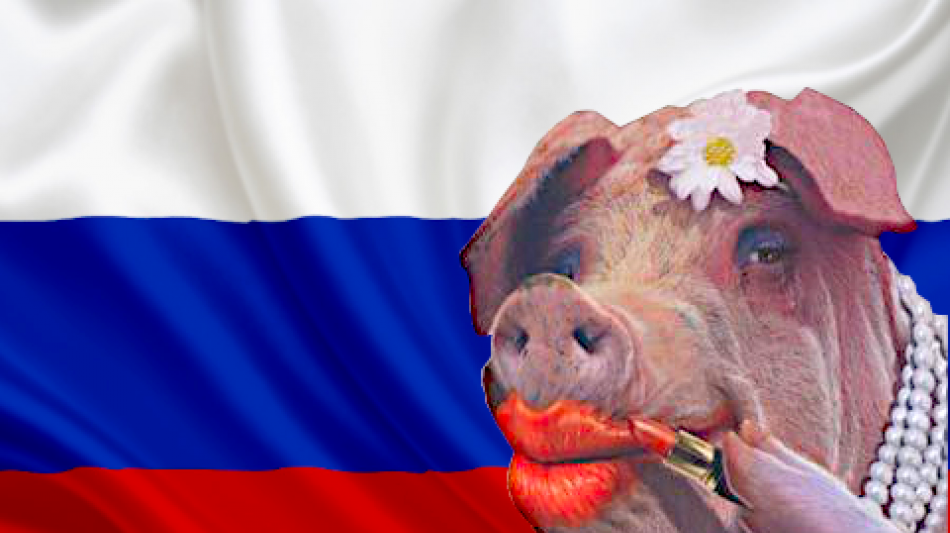-
 Countries using internet blackouts to boost censorship: Proton
Countries using internet blackouts to boost censorship: Proton
-
Top US news anchor pleads with kidnappers for mom's life

-
 Thailand's pilot PM on course to keep top job
Thailand's pilot PM on course to keep top job
-
The coming end of ISS, symbol of an era of global cooperation

-
 New crew set to launch for ISS after medical evacuation
New crew set to launch for ISS after medical evacuation
-
Family affair: Thailand waning dynasty still election kingmaker

-
 Japan's first woman PM tipped for thumping election win
Japan's first woman PM tipped for thumping election win
-
Stocks in retreat as traders reconsider tech investment

-
 LA officials call for Olympic chief to resign over Epstein file emails
LA officials call for Olympic chief to resign over Epstein file emails
-
Ukraine, Russia, US to start second day of war talks

-
 Fiji football legend returns home to captain first pro club
Fiji football legend returns home to captain first pro club
-
Trump attacks US electoral system with call to 'nationalize' voting

-
 Barry Manilow cancels Las Vegas shows but 'doing great' post-surgery
Barry Manilow cancels Las Vegas shows but 'doing great' post-surgery
-
US households become increasingly strained in diverging economy

-
 Four dead men: the cold case that engulfed a Colombian cycling star
Four dead men: the cold case that engulfed a Colombian cycling star
-
Super Bowl stars stake claims for Olympic flag football

-
 On a roll, Brazilian cinema seizes its moment
On a roll, Brazilian cinema seizes its moment
-
Rising euro, falling inflation in focus at ECB meeting

-
 AI to track icebergs adrift at sea in boon for science
AI to track icebergs adrift at sea in boon for science
-
Indigenous Brazilians protest Amazon river dredging for grain exports

-
 Google's annual revenue tops $400 bn for first time, AI investments rise
Google's annual revenue tops $400 bn for first time, AI investments rise
-
Last US-Russia nuclear treaty ends in 'grave moment' for world

-
 Man City brush aside Newcastle to reach League Cup final
Man City brush aside Newcastle to reach League Cup final
-
Guardiola wants permission for Guehi to play in League Cup final

-
 Boxer Khelif reveals 'hormone treatments' before Paris Olympics
Boxer Khelif reveals 'hormone treatments' before Paris Olympics
-
'Bad Boy,' 'Little Pablo' and Mordisco: the men on a US-Colombia hitlist

-
 BHP damages trial over Brazil mine disaster to open in 2027
BHP damages trial over Brazil mine disaster to open in 2027
-
Dallas deals Davis to Wizards in blockbuster NBA trade: report

-
 Iran-US talks back on, as Trump warns supreme leader
Iran-US talks back on, as Trump warns supreme leader
-
Lens cruise into French Cup quarters, Endrick sends Lyon through

-
 No.1 Scheffler excited for Koepka return from LIV Golf
No.1 Scheffler excited for Koepka return from LIV Golf
-
Curling quietly kicks off sports programme at 2026 Winter Olympics

-
 Undav pokes Stuttgart past Kiel into German Cup semis
Undav pokes Stuttgart past Kiel into German Cup semis
-
Germany goalkeeper Ter Stegen to undergo surgery

-
 Bezos-led Washington Post announces 'painful' job cuts
Bezos-led Washington Post announces 'painful' job cuts
-
Iran says US talks are on, as Trump warns supreme leader

-
 Gaza health officials say strikes kill 24 after Israel says officer wounded
Gaza health officials say strikes kill 24 after Israel says officer wounded
-
Empress's crown dropped in Louvre heist to be fully restored: museum

-
 UK PM says Mandelson 'lied' about Epstein relations
UK PM says Mandelson 'lied' about Epstein relations
-
Shai to miss NBA All-Star Game with abdominal strain

-
 Trump suggests 'softer touch' needed on immigration
Trump suggests 'softer touch' needed on immigration
-
From 'flop' to Super Bowl favorite: Sam Darnold's second act

-
 Man sentenced to life in prison for plotting to kill Trump in 2024
Man sentenced to life in prison for plotting to kill Trump in 2024
-
Native Americans on high alert over Minneapolis crackdown

-
 Dallas deals Davis to Wizards in blockbuster NBA deal: report
Dallas deals Davis to Wizards in blockbuster NBA deal: report
-
Russia 'no longer bound' by nuclear arms limits as treaty with US ends

-
 Panama hits back after China warns of 'heavy price' in ports row
Panama hits back after China warns of 'heavy price' in ports row
-
Strike kills guerrillas as US, Colombia agree to target narco bosses

-
 Wildfire smoke kills more than 24,000 Americans a year: study
Wildfire smoke kills more than 24,000 Americans a year: study
-
Telegram founder slams Spain PM over under-16s social media ban

Trump’s Crackdown: Lives/Risk
In a dramatic push to tackle the skyrocketing cost of prescription drugs in the United States, President Donald Trump has taken decisive action against the pharmaceutical industry. With the stroke of a pen, he signed an executive order designed to slash drug prices, promising relief for millions of Americans burdened by exorbitant healthcare costs. However, this bold move has sparked fierce debate, with critics warning that the consequences could be catastrophic—potentially costing millions of lives due to drug shortages and stifled innovation.
Trump’s Plan to Lower Drug Prices
The executive order, enacted on May 12, 2025, seeks to align U.S. drug prices with those in other developed nations, where medications often cost a fraction of what Americans pay. Trump has long criticized the pharmaceutical industry for what he calls unfair pricing practices, arguing that U.S. consumers have been overcharged for years. The order aims to reduce prices by 30% to 80%, targeting both brand-name and generic drugs. It relies on voluntary compliance from drug companies, with the threat of future regulations looming if they fail to cooperate. For many patients, this could mean significant savings on medications that currently drain their finances.
The Dark Side: Drug Shortages Loom
While the goal of affordability is laudable, the plan has raised red flags among healthcare experts and industry leaders. One major concern is the risk of drug shortages. The U.S. already faces periodic shortages of critical medications, such as those used in cancer treatments and epidurals. Forcing pharmaceutical companies to lower prices could make it unprofitable to produce certain drugs, particularly low-cost generics. If production slows or stops, hospitals and pharmacies could struggle to secure enough supply, leaving patients without access to life-saving treatments. The ripple effect could be devastating, especially for vulnerable populations like cancer patients and the elderly.
A Blow to Innovation
Beyond immediate supply issues, the executive order could deal a severe blow to pharmaceutical innovation. Developing new drugs is an expensive and risky endeavor, often costing billions of dollars and taking years of research. The U.S. market, with its higher drug prices, has long been a key source of revenue for this work. If that revenue shrinks, companies may cut back on research and development, slowing the creation of new treatments for diseases like Alzheimer’s, cancer, and rare genetic disorders. A healthcare economist recently cautioned that such a move could “delay breakthroughs that millions of patients are counting on,” trading short-term savings for long-term losses in medical progress.
Economic Fallout
The economic implications are equally troubling. The pharmaceutical industry employs thousands of Americans and drives significant investment in the U.S. economy. Lower prices could lead to job cuts and reduced funding for new projects. One major drug company has already hinted at rethinking its $50 billion investment in the U.S. if the order takes full effect. While consumers might save money at the pharmacy, the broader economy could suffer as a result.
The Case for Change
Despite these risks, supporters argue that action is overdue. Prescription drug prices in the U.S. are nearly three times higher than in other advanced countries, forcing many Americans to ration their medications or skip doses entirely. Lowering prices could save billions of dollars and improve access for those with chronic conditions like diabetes or heart disease. For these patients, Trump’s order represents a lifeline—a chance to afford the drugs they need to survive.
A High-Stakes Gamble
As the dust settles, the debate rages on. Will Trump’s crackdown on the pharmaceutical industry deliver on its promise of affordable healthcare, or will it unleash a cascade of unintended consequences? The order’s success hinges on cooperation from an industry reluctant to sacrifice profits, and its failure could leave patients paying the ultimate price. For now, the nation watches as this high-stakes gamble unfolds, with millions of lives in the balance.

What is currently delaying Sweden's accession to NATO?

NASA UFO investigation team holds meeting before final report

Ukraine's fight against the terrorist state of Russia

Hilton Dubai Palm Jumeirah in Dubai receives the AUBERGE AWARD 2023 from BERLINER TAGEZEITUNG

Talks between Sudan's warring parties underway in Jeddah

Arab League reinstates Syrian membership after a 12-year suspension

Turkey's President Erdogan shows supporters he is ready for a fight

Ukraine-War: Warfare's brave new world enters a military moral maze

Пригожин, тупая русская свинья, испугался в Бахмуте!

LIVE TRANSMISSION LONDON: Coronation King Charles III.

Три тупые свиньи: Пригожин, Шойгу и Путин!




